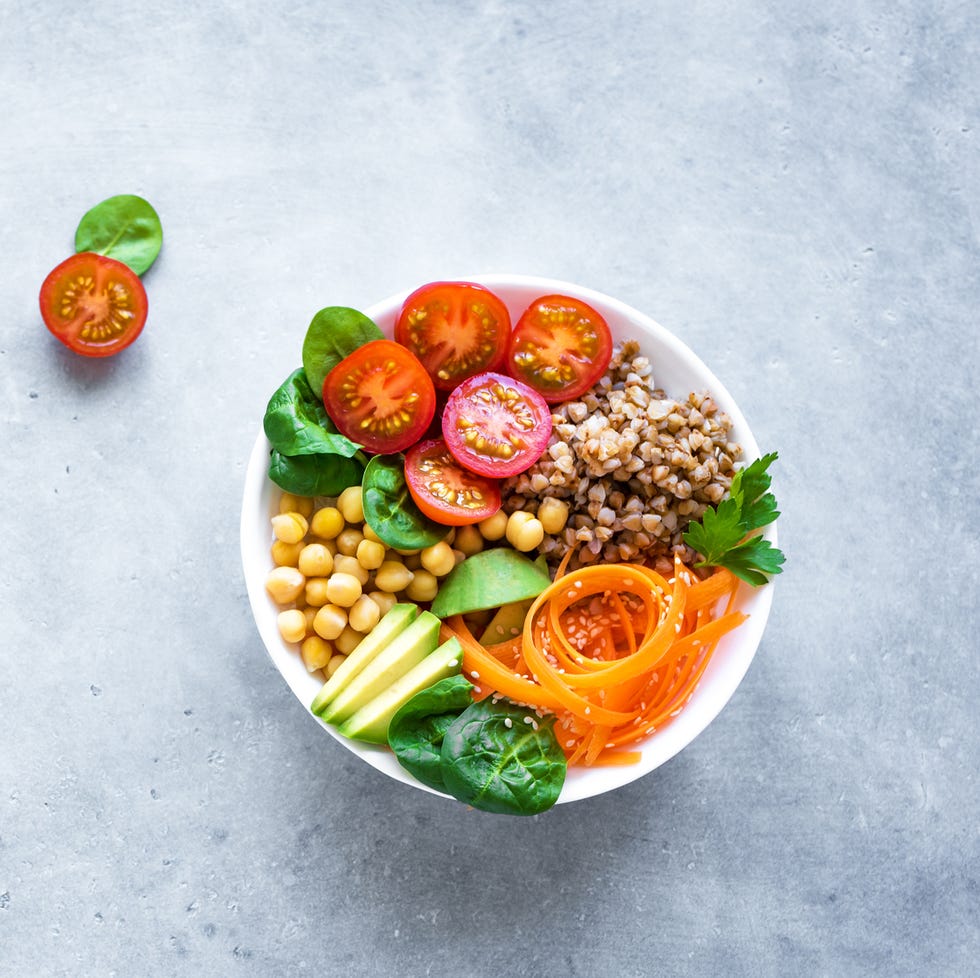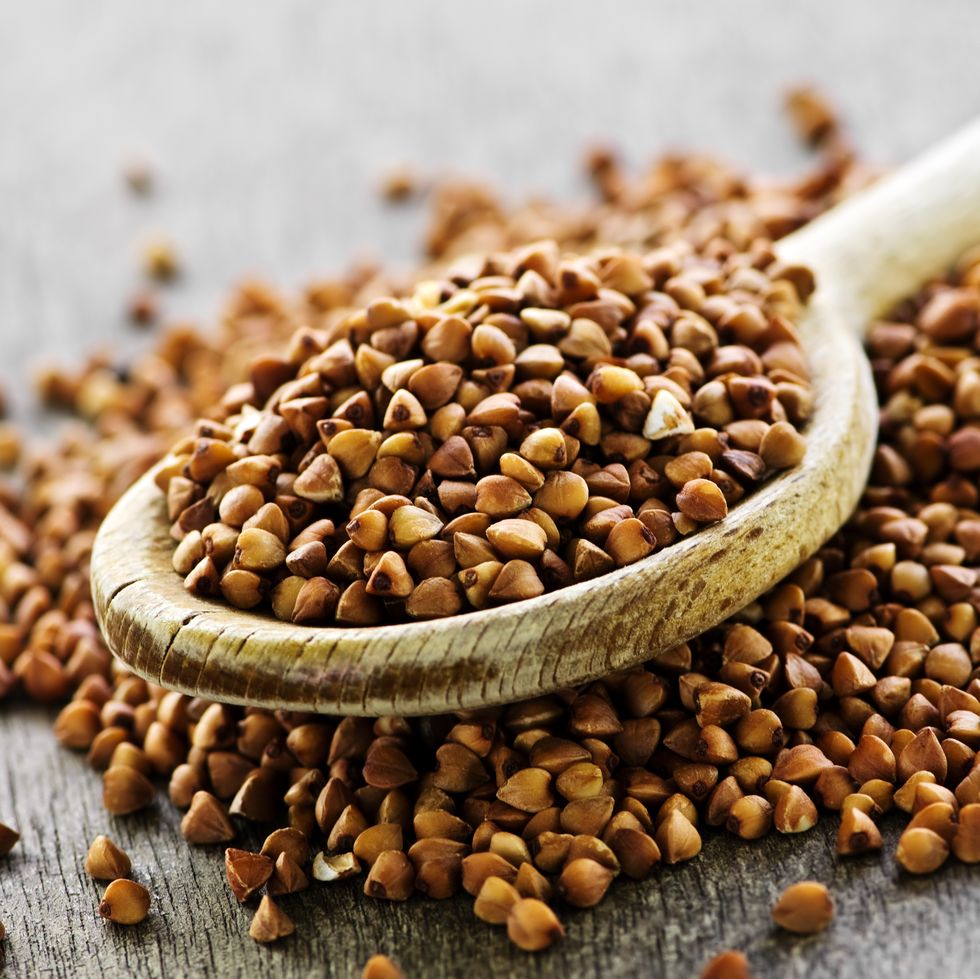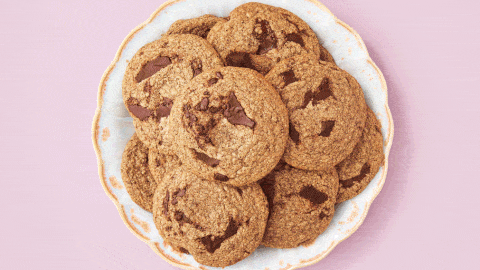Neither a grain nor a wheat, buckwheat is packed with nutrients and contains multiple health benefits. Gluten-free, and often considered an ancient grain, buckwheat in reality is a pseudocereal; a plant that forms a starchy seed and can be used like cereal or rice. It is a seed that comes from a plant closely related to rhubarb, and it has a very distinctive taste: earthy and nutty, with a soft and chewy texture. It is used to make buckwheat flour, kasha, soba noodles, granola and even tea and honey.
There are two main types of buckwheat, common buckwheat (fagopyrum esculentum) and tartary buckwheat (fagopyrum tartaricum). The difference between these two varieties lies in how they are bred and the climates they thrive in. “Buckwheat is mostly composed of carbohydrates,” according to registered dietitian, Gillean Barkyoumb, MS, RDN. “Buckwheat also provides a good amount of fiber, which supports feelings of fullness and satiety.” Studies involving buckwheat have shown that the fiber it contains can work to improve gut bacteria and overall gut health, as a prebiotic. “Additionally, the fiber content gives it a low to medium glycemic score, meaning it won’t cause an unhealthy spike of blood sugar after eating,” Barkyoumb adds.
What are the nutrition benefits of buckwheat?
Buckwheat is loaded with nutrients, and is richer in protein and antioxidants than wheat and rice. It is a complete protein, containing all nine essential amino acids, that the body must get from food. Complete proteins can be important when following a mostly plant-based diet. It is also loaded in minerals such as magnesium, according to Barkyoumb, “the minerals in buckwheat are absorbed particularly well since it is low in phytic acid, a common inhibitor of absorption found in grains and seeds.”
Nutrition Facts (per 1 cup roasted, cooked groats):
- 155 calories
- 33g carbohydrates
- 5.7g protein
- 1g total fat
- 4.5g fiber
- 1.5g sugar
- 148mg potassium
- 86mg magnesium
- 118mg phosphorus
Many people consider buckwheat a superfood because it is so rich in nutrients and antioxidants. According to Barkyoumb, buckwheat is a good source of manganese, magnesium, iron, copper and phosphorus. You will also find several antioxidants in buckwheat including rutin which may improve inflammation, blood pressure and blood lipids. D-chiro-inositol is a soluble carbohydrate that can help manage blood sugar levels, and there is no other food as rich in this plant compound as buckwheat.
Health benefits of buckwheat worth nothing:
- May improve blood sugar and diabetes: “Buckwheat may help improve blood sugar and manage diabetes because it provides a good source of fiber and has a low to medium glycemic index,” says Barykoumb. “This means that it is absorbed slowly and doesn’t result in high blood sugar spikes. Additionally, buckwheat provides a soluble carbohydrate, D-chiro-inositol, which makes cells more sensitive to insulin, the hormone that causes cells to absorb sugar from blood,” she adds. “Overall, people with type 2 diabetes may benefit from the fiber and nutrients found in buckwheat,” says Barykoumb. However, while studies in animals have shown promising results, more human based studies are needed.
- May promote heart health: Buckwheat supports heart health through two main processes, according to Barkyoumb. “First, it contains many heart-healthy compounds, including rutin. Studies suggest rutin may help reduce heart disease risk by preventing the formation of blood clots, decreasing inflammation and reducing blood pressure.” Buckwheat may also help to improve blood lipids, including cholesterol, adds Barkyoumb. “It’s thought that the mechanism behind this is that a protein in buckwheat binds to cholesterol in the digestive track and prevents absorption into the bloodstream,” although larger studies are needed to make recommendations.
- May improve digestion: The generous amount of fiber in buckwheat improves gut bacteria and help to move food through the digestive tract. “Buckwheat also provides niacin (vitamin B3), which is needed to digest and convert macronutrients into energy for the body to use,” says Barkyoumb. The combination of the two help to promote better overall digestion.
Are there any side effects to eating buckwheat?
Buckwheat is generally considered to be safe to consume, and severe reactions are rare. Some people that are allergic to rice, poppy seeds, coconut and latex may be allergic to buckwheat. Allergy symptoms of buckwheat can include, hives, skin rash, asthma, itching, swelling and difficulty breathing.
The bottom line:
Buckwheat is gluten-free and can be used much in the same way as other grains, although it may have more health benefits than for example wheat or rice. It can also be a great way to increase your fiber intake and gain a hearty dose of antioxidants at the same time.
If you are inspired to add more grains to your diet, checkout our story on the healthiest whole grains, or if cereal is more your style, follow our recommendations for the best healthy whole grain cereals.
Contributing Writer
Amy (she/her) is a registered dietitian with the Nutrition Lab at the Good Housekeeping Institute, covering nutrition- and health-related content and product testing. She holds a bachelor’s degree in journalism from Miami University of Ohio and a master’s degree in clinical nutrition from NYU. Prior to Good Housekeeping, she worked at one of the largest teaching hospitals in New York City as a cardiac transplant dietitian. She has authored numerous chapters in clinical nutrition textbooks and has also worked in PR and marketing for food company start-ups.
Nutrition Lab Director
Stefani (she/her) is a registered dietitian, a NASM-certified personal trainer and the director of the Good Housekeeping Institute Nutrition Lab, where she handles all nutrition-related content, testing and evaluation. She holds a bachelor’s degree in nutritional sciences from Pennsylvania State University and a master’s degree in clinical nutrition from NYU. She is also Good Housekeeping’s on-staff fitness and exercise expert. Stefani is dedicated to providing readers with evidence-based content to encourage informed food choices and healthy living. She is an avid CrossFitter and a passionate home cook who loves spending time with her big fit Greek family.



